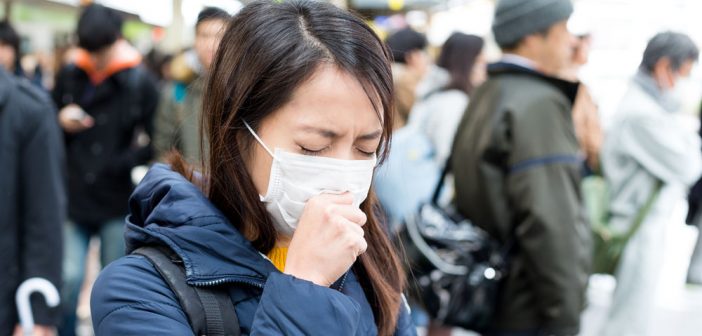The flu is a viral infection that mostly affects the sinuses and lungs. However, it can cause symptoms throughout your entire body. Symptoms can vary from mild to severe and include fever, headache, fatigue, muscle aches, sore throat, congestion, and cough. This can last for a few days or up to 2 weeks.
Anyone and everyone is vulnerable to catching the flu. The elderly and persons with compromised immune systems are more susceptible to getting sick and may experience worse complications. This can include pneumonia and even risk of death.
Because the flu is a virus, it does not respond to antibiotics as a treatment plan. There are a couple of anti-viral medications that can be helpful if administered at the onset of the flu. The very best way to address this infection is to prevent catching it in the first place. Here are some precautions you can take to avoid getting the flu.
1. Strengthen Your Immune System
One of the best defenses against the flu is to have a strong immune system. A strong immune system will also help you recover from the flu more quickly should you be exposed to it. There are some basic things you can do to strengthen your immune system:
- Eat a nutrient dense diet with plenty of fresh produce and lean protein.
- Exercise regularly (at least 30 minutes 3 to 5 days a week).
- Be sure to get adequate sleep (approximately 7 to 8 hours each night).
- Consider adding a good multi-vitamin and mineral supplement to your daily routine.
- Stay hydrated by drinking a minimum of 16 ounces of pure water every day.
- Take time to relax, refresh, and connect with loved ones.
2. Get Your Annual Flu Vaccine
A seasonal flu shot can protect you from a variety of strains of the virus. Flu vaccine shots or nasal sprays are available and administered at most pharmacies and clinics. Insurance will generally cover the cost. Some municipalities offer the vaccine at no charge.
It is estimated that the vaccine can reduce your risk of getting the flu by 50%. It may also reduce the severity of the illness. High-dose vaccines administered to those at risk are designed to stimulate your immune system for a stronger response to the virus.
3. Clean Your Home and Workplace
During flu season it is very important to clean consistently. Aside from vacuuming and dusting, it is recommended that you clean surfaces and plumbing fixtures with antimicrobial, disinfecting wipes or solutions. Essential oils diluted in water are also great for cleaning surfaces of bacteria. Remember to wipe doorknobs and light switches as well.
It is especially important to practice good hygiene if you are caring for someone with the flu. Be sure to wash their bed linens, towels, and clothing in hot soapy water regularly to help them recover faster.
4. Wash Your Hands
While on the subject of cleaning, it is a good idea to wash your hands often with warm soapy water. Always carry a small bottle of hand sanitizer with you in case you don’t have access to a sink and some soap.
Did you know that the flu virus can thrive for approximately 24 hours on most surfaces? This includes human skin. Be sure to wash your hands after touching another person whom you suspect might be sick. And, avoid eating or touching your face until you can sanitize your hands.
To properly clean a virus from your hands you need to use soap and water for approximately 20 to 30 seconds. Dry your hands with a clean towel or a paper towels.
5. Wear a Mask and Gloves
If you know you will be visiting spaces where others might have the flu, protect yourself by wearing a surgical mask and disposable gloves. These spaces might include airport terminals, planes, trains and subways, doctor’s offices, hospitals, schools, and public restrooms. One sneeze from an infected person can spread germs through the air up to 25 feet.
When caring for loved ones who have the flu, wear a mask and gloves while tending to them and while cleaning any rooms where they have been in. This might not seem like a very personal experience for the infirmed. Just explain that you are wearing a mask and gloves so that you can remain healthy to provide the TLC your patient needs.
6. Protect Your Toothbrush
If you are like most people, your toothbrush is sitting in a cup or holder on the bathroom vanity. Those little bristles are amazing germ catchers. It is best to either cover the head of the toothbrush after using it or place it in a cabinet.
Another thing you need to do is to close the lid of your toilet before flushing, especially if you are sharing the bathroom with someone who is ill. The spray from an open toilet can spread droplets up to 6 feet away. Those germ-filled droplets can end up on other surfaces including your unprotected toothbrush.
7. Clean the Air Around You
If it is practical, invest in room diffusers. These are small portable electric appliances that you fill with water and a few drops of essential oils to clean and humidify the air. Essential oils that have anti-viral and ant-microbial properties include eucalyptus, tea tree, peppermint, lavender, and thyme. You can find essential oil blends that are designed specifically to kill germs associated with colds and flus.
The flu is a serious illness that you need to be mindful of not catching. By putting a few practices in place to remain healthy during flu season you may be able to avoid getting the virus. Prevention is your best defense. Try these tips and see your doctor if you do feel like you are coming down with the flu.








